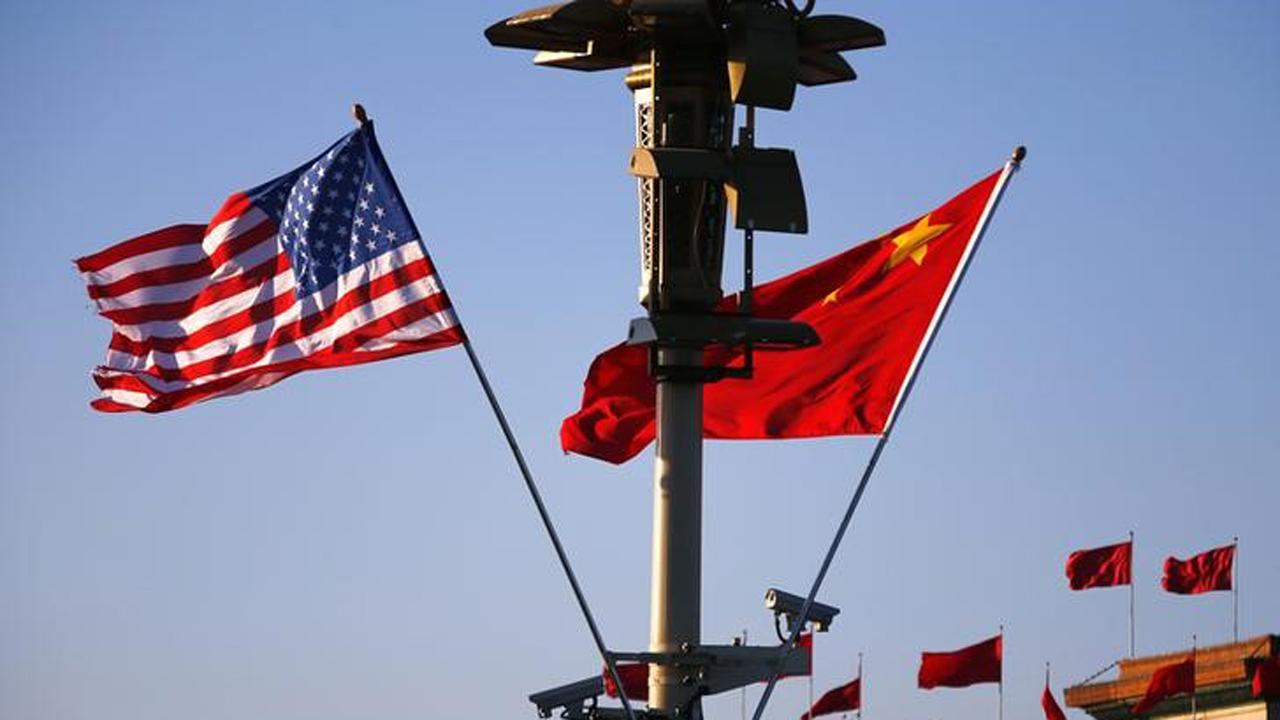'A change in mood:' Allies soften tone on US trade policy
The International Monetary Fund kicked off its annual gathering this past week with a stern warning about protectionism, downgrading its global growth outlook in part because of trade conflicts.
But it ended it with central bankers and finance ministers taking a much less dire and confrontational tone than America's trading partners had after previous international meetings.
Earlier meetings came against the backdrop of tough rhetoric from Washington about the trading practices of U.S. allies and open threats of new tariffs on cars. This time, officials gathering in Bali took some comfort from progress resolving many trade disputes even as a standoff between the U.S. and China has escalated.
Speaking to reporters before departing Indonesia on Saturday, German Bundesbank President Jens Weidmann said he had seen "a certain change in mood," and recent breakthroughs like the trade agreement between U.S., Canada and Mexico "have made this scenario of an uncontrolled escalation a bit less probable."
The tone was a sharp change from the June meeting of the G-7 group of industrialized nations, which ended with a strong, joint condemnation of the U.S. by the other six members of the club, including Germany.
Since then, the U.S. has wrapped up negotiations with Mexico and Canada over a new trade deal to replace Nafta, has put auto tariffs on hold while it holds talks with the European Union, has agreed to enter bilateral talks with Japan and has finalized a free-trade deal with South Korea.
In addition, President Donald Trump appears on track to meet Chinese President Xi Jinping at another international gathering in November, raising hopes that the escalating dispute between the U.S. and China could be blunted if not resolved.
German Finance Minister Olaf Scholz expressed optimism Friday about the state of Europe's talks with the U.S., which began in July, telling reporters in Bali that he thinks talks will "not lead to the expectation of a trade escalation" and said there is trust on both sides.
On Saturday, Bank of Japan Governor Haruhiko Kuroda expressed similar sentiments about the outlook for trade disputes more broadly.
"Since trade protectionism or trade conflict or trade war would be bad for all economies...at some stage, this will be stopped," he said.
Yet in an indication such optimism is as much hope as prediction, he added that he didn't know how or when.
The U.S.'s aggressive use of tariffs has shaken the community of government officials who have spent years voicing support for more open trade. Criticism of the U.S. has been a common theme of international gatherings over the past year, and few dispute the IMF's conclusion that the imposition of tariffs has damaged the global economy.
A gathering of ministers in Buenos Aires in March ended with the U.S. rejecting language about easing trade tensions in a communiqué. The spring meetings of the IMF ended with the French saying the U.S. was forcing countries to negotiate "with a gun to our heads."
Even at this meeting, Indonesian President Joko Widodo, who addressed the finance ministers and central bankers on Friday, lamented that relations among advanced countries increasingly resemble those in the dog-eat-dog medieval drama "Game of Thrones."
The U.S. continues to threaten several major tariff escalations. First, the administration is considering applying tariffs to all imports of automobiles and auto parts, which only Mexico and Canada have deals to avoid. Second, the current tariffs on China are set to rise to 25% from 10% at the end of the year.
Third, Mr. Trump has threatened a final round of tariffs on an additional $267 billion of Chinese imports, likely covering nearly 100% of China's trade with the U.S.
Still, China's top central banker emphasized that the country is committed to negotiations. "A constructive solution is better than a trade war," Yi Gang, governor of the People's Bank of China, said Sunday.
U.S. Treasury Secretary Steven Mnuchin said America's trade agenda was becoming clearer to the rest of the world.
"We've made a lot of progress in trade," he said. "From my first meeting, I think there was concern that the U.S. was focused on protectionism. I think that's absolutely not the case. I think the U.S. is focused on free and fair and reciprocal trade."
And while many nations around the world have questioned U.S. tactics, the idea of revisiting the rules of the global trading system, once greeted with skepticism, is gaining popularity.
A communiqué, released at the conclusion of the IMF meetings, included a call to reform the World Trade Organization, a first and a sign that many countries have become open to rewriting trade rules.
"The conversation is beginning, it's not bilateral, it involves more people," Roberto Azevêdo, the WTO's general director, told reporters here in Bali. "A lot of the concerns that have been expressed by one side and the other could be addressed in these conversations."
Officials remain wary of U.S. intentions. Many have seen the winds change with the Trump administration before, and Mr. Mnuchin has struck a more conciliatory tone on trade than others in the administration. In May, for example, Mr. Mnuchin said the U.S. was putting its trade actions on hold, only for the U.S. to turn around that same week and announce an escalation of tariffs on China, and end the month by levying steel and aluminum tariffs on the rest of the world.
Jean Lemierre, the chairman of BNP Paribas, said he believes the U.S. and China will reach an agreement within the next couple of years.
"What they will agree on, I don't know," Mr. Lemierre said." But they will agree.




















